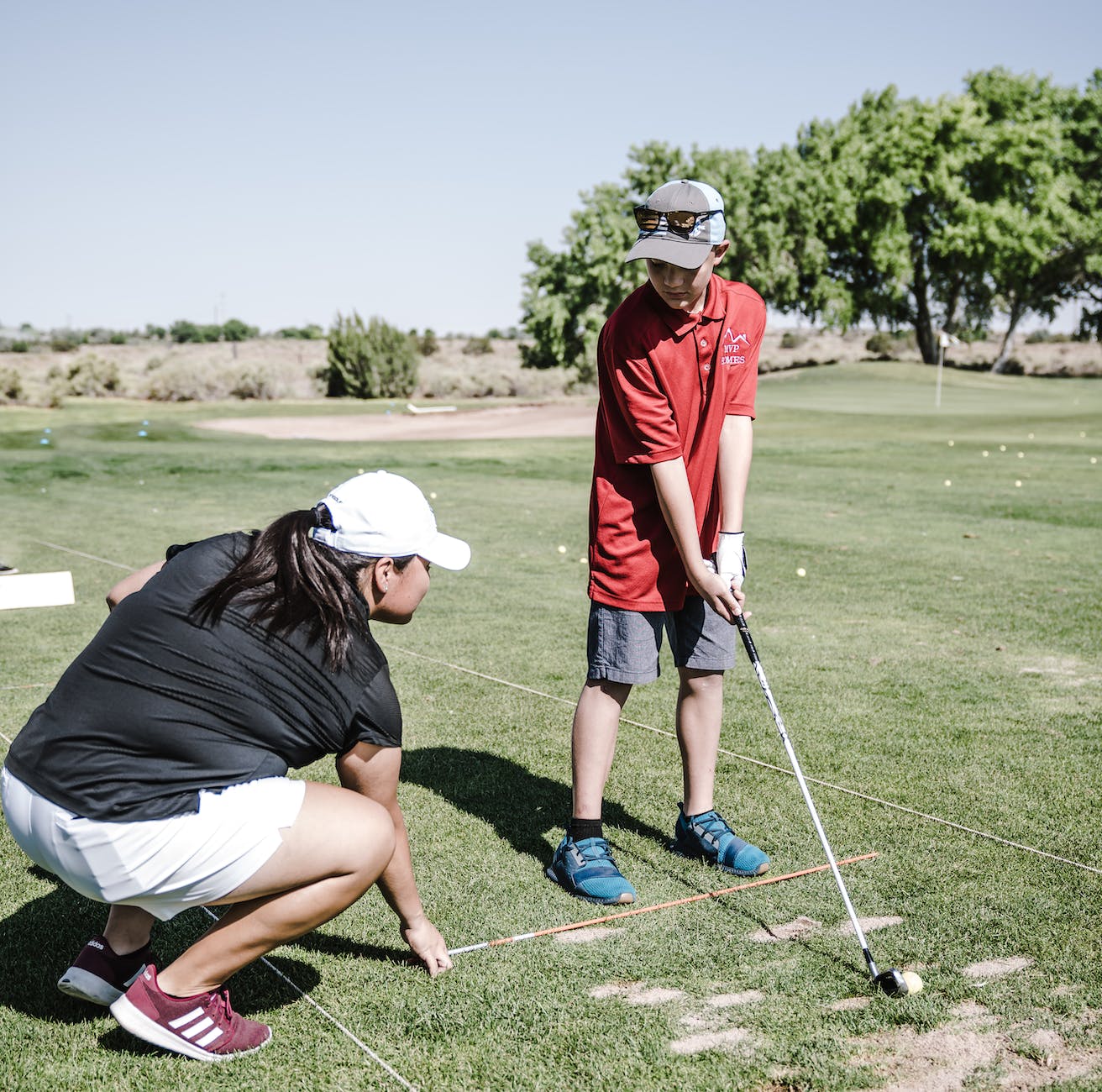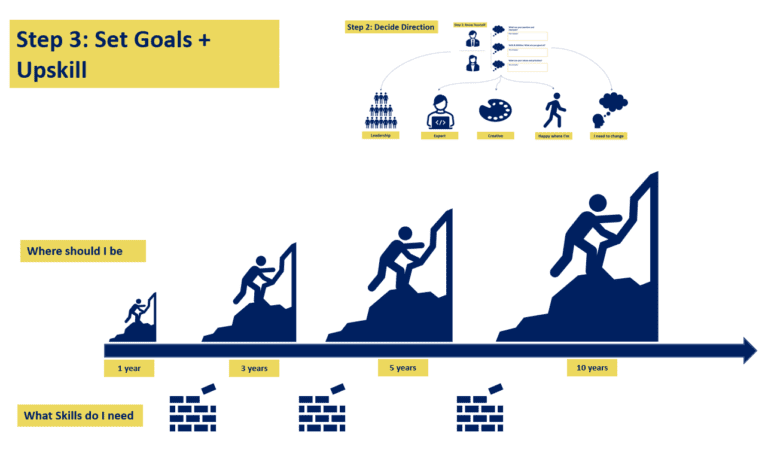7 Simple Tips To Succeed In A Job Interview

So, you’ve gotten the next job interview soon! Congratulations!! If you are like most people, you are nervous, and many questions run in your mind.
- What if I botch the entire hiring process in a minute at the job interview
- What if the hiring managers aren’t convinced that I’m better than other candidates
- What if the new job isn’t what I sign up for?
- How do I negotiate the job offer with my hiring manager?
- How do I answer questions about the past jobs / previous roles convincingly
- How do I keep the relationship warm so I can have a chance until my next interview
- How do I handle the tricky behavioral interview questions
- How do I get the most out of this job search process
- How do I present myself as the ideal candidate & have the right body language
- How do I know the company has the right management style
- How do I recover from a tough interview situation
- How do I explain my prospective employer that I don’t leave the last company / current job without thinking about it
- How do I understand the specific job I’m expected to do
- How do I understand the work environment better in the new job
- How do I maintain eye contact throughout
- How do I explain why I’m leaving the current position
- I’m through with the first round, how to succeed in final interview
Some of these questions are easily solved. For others, you need to think about your answers and how to word them in the most positive light possible.
In this post, we will go over the how to prepare for our interviews and look at some of the most common interview questions. By the end of this post, you will have a complete guide to nailing your next job interview!
Let’s get started.
1. How to prepare for your job interviews

Basics first! You need to know what you’re getting into before you can start preparing.
The first step is to understand the types of questions that are commonly asked in job interviews.
There are three main types of questions:
– Behavioral Questions
– Technical Questions
– Fit Questions
behavioral questions are asked to get a better understanding of how you have handled situations in the past. They usually start with, “Tell me about a time when…”
Technical questions are asked to test your knowledge about the job, specific skills required for the role, and whether you have the ability to actually do the job.
Fit questions are asked to gauge how well you will fit in with the company’s culture, values, and team.
Now that you know the types of questions that will be asked, you can start preparing your answers.
When preparing your answers, it is important to keep the following in mind:
– Be honest
– Be positive
– Be specific
Your goal is to convince the interviewer that you are the best candidate for the job. The best way to do this is by being honest, positive, and specific in your answers.
1. Do your research – learn about the company, their values, and what they’re looking for in a candidate
When you walk into an interview, the interviewer should be able to see that you have a genuine interest in the company and what they do. This starts with doing your research.
Learn about the company’s history, their values, and what they’re looking for in a candidate. This will give you a great foundation to build upon when answering questions.
2. Practice your answers to common interview questions
One of the best ways to prepare for your job interview is to practice your answers to common questions. This will help you to feel more confident and ensure that you’re able to deliver your answers in a clear and concise way.

Some common questions include:
– Tell me about yourself
– Why are you interested in this role?
– What are your strengths and weaknesses?
– Tell me about a time when you faced a challenge at work
– Tell me about a time when you went above and beyond in your role
By preparing for these questions, you’ll be in a great position to ace your job interview.
3. Dress for success – choose professional clothing that makes you look and feel confident
Your appearance can have a big impact on how you’re perceived in an interview. Choose professional clothing that makes you look and feel confident. This will help you to project the right image and give off a positive impression.
Remember that first impressions count. So, make sure you’re dressing for success.
4. Arrive early to the interview so you have time to relax and mentally prepare yourself
Arriving early to the interview will give you time to relax and mentally prepare yourself. This way, you’ll be in the right frame of mind to deliver a great performance.
aim to arrive at least 15 minutes early. This will give you time to use the restroom, check your hair and makeup, and review your answers to common questions.
5. Be prepared to talk about your experience and qualifications in detail
When you’re in an interview, the interviewer will want to know all about your experience and qualifications. Be prepared to talk about these in detail. This way, you’ll be able to effectively sell yourself as the right candidate for the job.
Here are some helpful job interview related blogs
- Tackling the final interview round
- How to answer ‘tell me about yourself’
- What are your career aspirations
- Why do you want this job
- Why should we hire you
- Why are you leaving your job
- What are you passionate about
- Strengths and Weaknesses In Interview
- Interview questions for managers
- What is your management style
- Interview questions for freshers
- Tips to succeed in a job interview
- Types of interview questions
- Interview questions to ask candidates
- Behavioural interview questions
- Walk me through your resume
- What makes you unique
- What are your goals
- How do you handle stress and pressure
- Are you a team player
- How did you hear about this position
- Where do you see yourself in five years
- How do you handle stakeholders
2. What questions you should ask the Hiring Manager in a job interview

Asking thoughtful questions about the role and the company is a great way to show your interest and enthusiasm. It also shows that you’re engaged in the conversation and that you’re truly interested in the opportunity.
Some great questions to ask include:
Role you’re interviewing for and how it fits into the company’s overall goals
Ask questions about the role you’re interviewing for and how it fits into the company’s overall goals. This shows that you understand the bigger picture and that you’re interested in how you can contribute to the company’s success.
The team you’d be working with
Ask questions about the team you’d be working with if you were to be successful in the role. This shows that you’re interested in working with a great team and that you understand the importance of teamwork.
The development and training opportunities available
Ask about the development and training opportunities available at the company. This shows that you’re interested in learning and growing within the company.
The company culture
Ask about the company culture and what it’s like to work at the company. This shows that you’re interested in finding a company where you’ll be happy and engaged.
Next steps in the interview process so you know what to expect
Finally, ask about the next steps in the interview process so you know what to expect. This shows that you’re interested in the role and that you’re excited about the opportunity to move forward in the process.
You don’t want to ask if you’ll get the job offer, but you can ask about the timeline for making a decision or the next steps in the process.
By asking thoughtful questions, you’ll be able to make a great impression and show that you’re the right candidate for the job.
3. The most common job interview questions & how to answer them

You can’t possibly prepare for all the job interview questions, but you can prepare yourself for the most common ones. Let’s take a look at some of the most common job interview questions and how you can answer them.
We’ll also be going through more job interview questions in a follow up blog. Also, remember to connect each of these to the actual job description.
1. Tell me about yourself
The best response to this interview question is to give a brief overview of your professional experience, qualifications, and skills. Keep your answer concise and focus on the highlights that are most relevant to the role you’re interviewing for.
Keep a story like format.
It’s a story: It’s not just children who enjoy stories–adults do too! In fact, we’re more likely to listen to a story than a list of facts. So during your interview, share a few personal anecdotes that will help the interviewer get to know you better and understand what motivates you. They already have your impressive resume in front of them, so there’s no need to repeat everything that’s on it. What they really want is for you stand out from all the other candidates.!
It’s an interesting story: Make sure your story is interesting, engaging, and relevant to the interviewer. It should make them want to know more about you as a person.
It’s a short story: Don’t go on for too long! It’s okay to talk about yourself but remember that the interviewer is not your best friend. Keep your answers sharp and concise. I usually open by saying something along the lines of, “I understand that it’s important to talk about myself, but I will try my best to keep it under 2-3 minutes.” By setting this expectation, I’m letting the interviewer know that they only need to listen to me for a short amount of time.
It’s a true story: It is crucial that you don’t invent any information. Instead, be transparent with the interviewer and tell them about yourself honestly. If you make up anything, they will figure it out eventually and your likelihood of getting the job will diminish greatly. Furthermore, do not try to make yourself sound superior or give the interviewer what you think they want to hear; just be authentic and honest.
It’s a relevant story: This is an excellent opportunity to demonstrate why you are the best candidate for the job. make sure your story is relevant to the position you are interviewing for, and that it illustrates how you meet the requirements of the job. Your story should eventually connect to the job description.
It has a point: After each experience, we should take away something valuable–a moral or a lesson. In other words, what did you learn from this story? And more importantly for the interviewer’s sake, what can they infer about your character from your story?
2. Why are you interested in this position/company?

This is one of the most common interview questions, and it can be difficult to answer. The key is to do your research on the company beforehand so that you can explain why you’re interested in working there.
First, look at the company’s website and read through their mission statement and values. What do you agree with? What do you disagree with?
Second, take a look at their recent news articles. Have they been in the news for something good or bad?
Third, look at their social media accounts. What kind of culture do they have? Do their employees seem happy?
By doing your research for a few hours, you should be able to get a good idea of what the company is all about and whether or not you would be a good fit. This way, you’ll also be able to handle follow up questions and present yourself as the right person for the job.
When the interviewer asks, explain your thought process about why you’re interested in the company. Use real life data,
I’m most interested in working for companies that are doing something innovative and unique. I want to be on the cutting edge of technology, and I believe that your company is doing just that. In addition, I appreciate that your company has a strong focus on social responsibility. For me, it’s important to work for a company that is not only profitable but also has a positive impact on society.
I also like that your company is small and nimble. I’m excited about the opportunity to work for a company where I can have a big impact and make a difference. From what I can tell, your employees are also very passionate about their work, which is something that I value.
Overall, I believe that working for your company would be a great opportunity for me to grow as a professional and to make a contribution to something that I’m passionate about.
3. What are your strengths and weaknesses?
When asked about your strengths, be prepared to give examples of times when you have excelled in the past. It can be helpful to think about the qualities that are important to the role for which you are interviewing.
For example, if you are applying for a position as a salesperson, you might mention that you are a good negotiator or have a strong network of contacts. If you are interviewing for a position in customer service, you might mention that you have a lot of patience and are able to stay calm under pressure.
When asked about your weaknesses, try to choose a weakness that is not essential to the job for which you are interviewing. Also, when discussing your weaknesses, be sure to mention what you are doing to improve upon them. For example, if you are not very good at public speaking, you might say that you are taking a class or attending workshops.

Some examples:
My biggest strength is my ability to stay calm under pressure. I never lose my cool, even when things are getting hectic.
My biggest weakness is that I sometimes have trouble saying no to people. I want to help everyone, but sometimes I end up biting off more than I can chew. Recently, I’ve been working on saying no more often, and it’s been helping me manage my time better.
I’m very analytical and I like to take a methodical approach to problem-solving. Sometimes, this can make me seem a little too slow for some people’s liking. But it also means that I’m very thorough and I rarely make mistakes.
I’m a bit of a perfectionist, so I sometimes have trouble finishing projects because I’m always trying to make them perfect. I’ve been working on learning to let go and just complete projects to the best of my ability, rather than dwelling on them forever.
I’m very outgoing and I love meeting new people. Sometimes, I can come across as a bit too forceful. I’m working on toning it down a bit so that I don’t overwhelm people.
I’m very passionate about my work and I can get very emotionally invested in projects. This can sometimes make it hard for me to take constructive criticism. I’m working on being more open to hearing feedback and taking it to heart.
Be prepared to give an explanation for why you chose this particular weakness and how you are working to improve upon it.
4. Describe a time when you faced a challenge at work and how you dealt with it
When answering this question, you want to choose a specific example of a time when you faced a challenge at work. Try to avoid giving general answers or talking about challenges that are not work-related.
When discussing the challenge, be sure to focus on what you did to overcome it. Did you come up with a creative solution? Did you take initiative and come up with a plan of action? Did you rally your coworkers to help you solve the problem?
Be sure to avoid discussing challenges that you were not able to overcome. You want to focus on your successes and how you coped with difficult situations.
Some examples:
I was once assigned to a project that was way over my head. I didn’t know where to start, but I knew I had to figure it out quickly. So, I went to my boss and asked for help. They ended up giving me some guidance and I was able to complete the project successfully.
I was working on a presentation for a big client, but I didn’t have enough data to support my argument. So, I did some extra research and was able to find the information I needed. The presentation went well and the client was happy.
I was leading a team project, but one of my team members wasn’t pulling their weight. I sat down with them and talked about the situation. We were able to come up with a plan where they would complete their tasks in a different way that was more efficient for them. As a result, the project was completed on time, and everyone was happy.
When discussing your challenge, be sure to focus on what you did to overcome it. This will show the interviewer that you are a problem-solver who is not afraid of challenges. It will also give them a better understanding of how you work and how you handle difficult situations.
5. Tell me about a time when you made a mistake at work and what you learned from it
When answering this question in a job interview, it’s important to stay positive and focus on the lessons you learned. Try to avoid sounding defensive or making excuses. Here’s an example of how to answer this question:
“I’ve made mistakes at work in the past, but I’ve always tried to learn from them. For example, one time I accidentally sent an email to the entire company instead of just the team I was working with. I quickly realized my mistake and corrected it, but I also took the time to review the email etiquette guidelines so that I wouldn’t make the same mistake again. I think it’s important to face our mistakes head-on and learn from them so that we can grow as professionals.”
6. What are your salary expectations for this role?
When asked about your salary expectations, it is important to stay positive and assertive. You want to present yourself as someone who is confident in their skills and abilities, and who is also willing to negotiate.

First, you should do some research on what the average salary is for someone with your skillset in your area. Once you have an estimate, you can give a range that you are comfortable with. For example, “I am looking for a position that pays between $50,000 and $60,000.”
If the interviewer pushes for a specific number, be prepared to give a number that is higher than what you are actually willing to accept. However, remember to stay reasonable – you don’t want to price yourself out of a job offer.
In the end, salary is always negotiable. The most important thing is to show that you are confident in your skills and abilities, and that you are willing to discuss your salary expectations.
4.What to do after a job interview
After a job interview, it’s important to stay in touch with the hiring manager. You can do this by sending a thank-you note or email, connecting with them on LinkedIn, or following up with a phone call. This will show that you’re still interested in the opportunity, and it will help to keep your name top-of-mind.
It’s also important to debrief with yourself after the interview. Take some time to reflect on how it went and what you could have done better. This will help you to improve for future interviews.
1. Thank the interviewer for their time & agree how you’ll follow up
Thanking the interviewer for their time is always a good way to end an interview. It shows that you are polite and grateful for the opportunity. You can also use this time to agree on how you will follow up. For example, you could say something like, “I’ll send you a thank-you note tomorrow, and I’ll call you next week to follow up.”
By following up after the interview, you can stay in touch with the hiring manager and show that you are still interested in the role. This will increase your chances of getting an offer.
2. Send a follow-up email or letter expressing your interest in the position
Sending a follow-up email or letter is a great way to show your interest in the role. In the email, you can thank the interviewer for their time and reiterate your interest in the position. This is also a good opportunity to address any concerns that the interviewer may have had about your qualifications.
If you’re not sure how to write a follow-up email, you can find templates online. Just make sure to customize the email so that it sounds like your own.
3. Connect with the interviewer on LinkedIn
If you don’t already have a LinkedIn account, now is the time to create one. LinkedIn is a great way to stay in touch with industry contacts and potential employers.
When you connect with the interviewer on LinkedIn, be sure to include a personal message. This is a great opportunity to thank them for their time and express your interest in the role.
4. Research the company and prepare for a second interview, if necessary
After the interview, it’s important to do your homework and learn more about the company. This will show that you are truly interested in the opportunity and that you are willing to go the extra mile.
You should also be prepared for a second interview, if necessary. This is usually a good sign, as it means that the company is interested in you. Be sure to prepare for any questions that they may have.
5. Stay positive and optimistic throughout the process
The job search process can be long and frustrating. It’s important to stay positive and optimistic throughout, as this will help you to maintain your energy and focus.
Remember that the right job is out there for you. It may just take some time to find it.
By following these tips, you can increase your chances of landing the job that you want.
5- Hire an interview coach

If you’re serious about landing your dream job, then you should definitely consider hiring an interview coach. A good coach will help you to prepare for any questions that the interviewer may ask. They will also give you feedback on your performance so that you can improve for future interviews.
Here are a few reasons why you should hire an interview coach. More on it here
1. Improve your interview skills
If you’re looking to improve your interview skills, then hiring an interview coach is a great option. An experienced coach will be able to help you identify your weaknesses and give you the tools you need to improve your performance.
2. Get an unbiased opinion
It can be difficult to get an unbiased opinion on your interview skills from friends or family. However, an interview coach will be able to give you honest feedback on your performance.
This will allow you to make the necessary adjustments to improve your chances of success.
3. Boost your confidence
One of the main reasons why people hire an interview coach is to boost their confidence. A coach will help you feel more prepared and confident going into an interview, which can make a big difference in your performance.
4. Save time and money
Hiring an interview coach can save you a lot of time and money in the long run.
A coach can help you avoid making common mistakes that can cost you dearly in terms of time and money.
5. Help get your body language right
You can probably answer questions and use all the right words. But only less than 10% of human communication is vocal. Your body language, eye contact, tone etc. matter a great deal.
An interview coach will help you get your nonverbal communication in check so that you can create a great first impression.
6. Get the job you want
Ultimately, the goal of hiring an interview coach is to help you get the job you want.
An experienced coach will increase your chances of success by helping you prepare for the interview and giving you the tools, you need to impress potential employers
6- Bonus: The best way to dress for your job interview

1. Do your research – find out what the dress code is for the company you’re interviewing with
If you’re unsure, it’s always better to dress on the more formal side. Once you know the dress code, take some time to choose the right outfit.
Make sure it’s clean and wrinkle-free, and that you feel comfortable in it.
2. Choose clothing that is comfortable and that you feel confident in
You want to make sure that you’re comfortable in your clothing so that you can focus on the interview.
Choose an outfit that you feel good in and that makes you feel confident.
This will help you to make a great impression on the interviewer.
3. Wear appropriate shoes – avoid flip flops or sandals, and make sure your heels aren’t too high
Your shoes should be clean and appropriate for the occasion. Avoid flip flops or sandals, as well as heels that are too high. I don’t want to get specific, but you get the idea.
Wearing the right shoes will help you to feel more confident and put-together.
7- Bonus: Online Job Interview Tips – how to make an impression

1. Make sure you have a good internet connection
No one wants to see your interview cut out because of a bad connection. Do a test run before your interview to make sure that your internet connection is good.
You don’t want any technical difficulties during your interview.
2. Dress the part
Even though they can’t see you, dress as if you’re going into an office for an interview.
You want to make a good impression and dressing the part will help you to feel more confident.
3. Be prepared
Know the company’s values and what they’re looking for in a candidate so that you can sell yourself well.
Also, have a list of questions prepared to ask the interviewer. This will show that you’re interested in the company and the position.
4. Practice makes perfect
Do a few mock interviews with friends or family before the real thing so that you’re not caught off guard.
The more prepared you are for the job interview, the more confident you’ll feel and the better your chances of impressing the interviewer.
5. Follow up after the interview
Thank the hiring managers for their time and send a follow-up email reiterating your interest in the position.
This is your last chance to make a good impression, so take the time to do it right.
Here are some helpful career/leadership related blogs
- Careers– Agile Coach, RTE, Product Owner, Scrum Master, QA Manager
- Career development plan
- Career growth
- Project Management
- Managing Managers
- IT Career switch
- Software Engineering career path
- Agility, Agile Testing
- Remote leadership / Leadership traits / Agile leadership
Other Productivity / Tools posts that may interest you
- Productivity
- Book summary apps – Headway App vs Blinkist vs getAbstract
- AI Writers: / Blogging – Jasper, Writesonic, Article Forge , Copy AI, Anyword, Writecream, Copymatic, Quillbot, Peppertype, Jasper AI (pricing) &
- Work From Home tools: Jabra
About the author: Ilam’s career in Technology and Financial Services spans more than two decades, characterized by leadership roles and vast international experience. He has managed large global teams, worked across five countries, and engaged with colleagues from over 100 nationalities. Through this blog, Ilam shares his diverse experiences and insights, aiming to contribute to and enrich the community.




